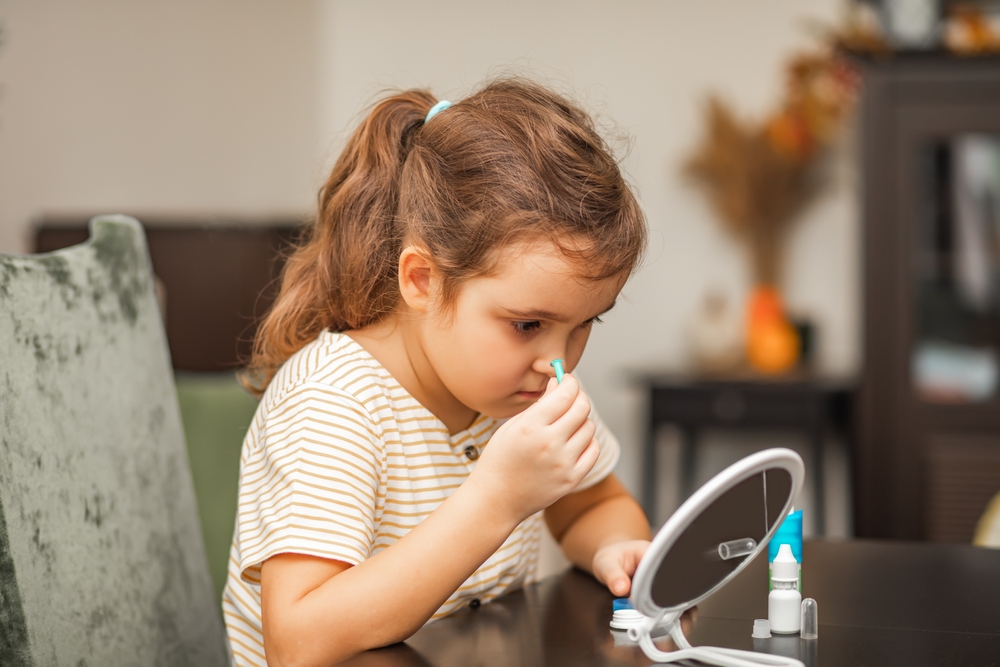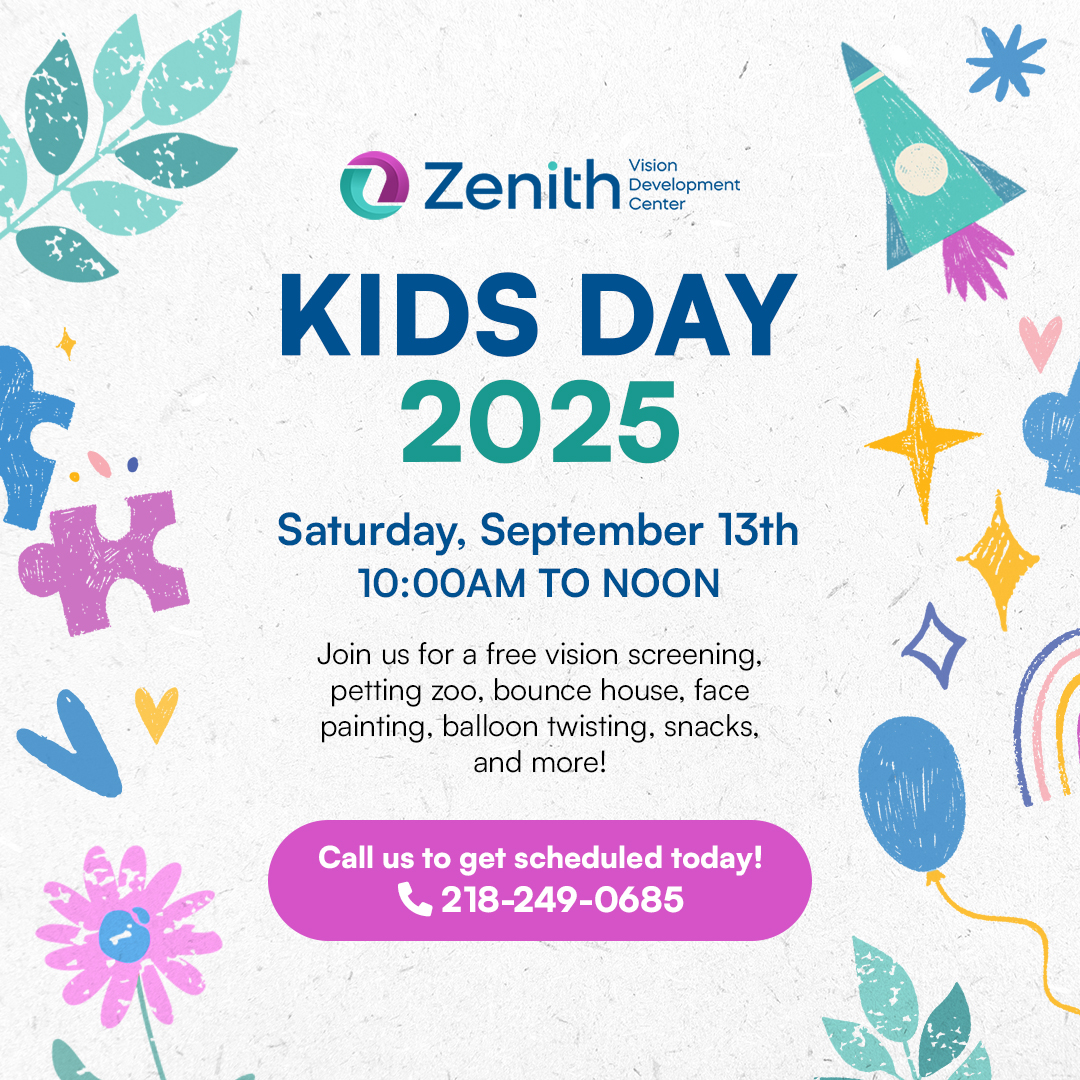
In Northern Minnesota, more families are noticing that their children are becoming nearsighted at an early age. Known as myopia, this vision condition makes it difficult to see things clearly at a distance. While glasses can help correct the blur, they do not stop myopia from worsening over time. At Zenith Vision Development Center, we are committed to helping families in our community understand the importance of early detection and treatment to protect their children’s vision and overall development.
Understanding Myopia
Myopia, commonly known as nearsightedness, is a growing concern among children. It occurs when the eye grows too long or the cornea is too curved, causing light to focus in front of the retina instead of directly on it. As a result, distant objects appear blurry while close-up vision remains clear. While glasses and contact lenses can correct the vision, they do not address the underlying progression of myopia.
Children with undiagnosed or untreated myopia may struggle in school without even realizing they have a vision problem. They may squint to see the whiteboard, lose interest in outdoor activities, or avoid reading and writing. Poor vision can lead to frustration, lower academic performance, and even behavioral issues. Because vision plays such a vital role in a child’s ability to learn and interact with the world, identifying and treating myopia early is crucial.
Why Early Detection Is Essential
Children often do not complain about their vision because they may assume everyone sees the way they do. That is why routine pediatric eye exams are essential, even if a child does not show symptoms. Comprehensive eye exams can detect myopia in its early stages before it significantly affects a child’s daily life. The earlier myopia is detected, the more effectively it can be managed to slow its progression.
What is Myopia Management and Why Is It Important?
Myopia management goes beyond simply correcting blurry vision. It focuses on slowing the progression of myopia to reduce the risk of serious eye conditions later in life, such as retinal detachment, glaucoma, or macular degeneration. We offer several treatment options for managing myopia in children:
Atropine Eye Drops: Low-dose atropine drops are applied nightly and have been shown to slow the progression of myopia.
Orthokeratology (Ortho-K): These are specially designed contact lenses worn overnight that gently reshape the cornea and slow the elongation of the eye.
Multifocal Glasses or Soft Contact Lenses: These lenses provide clear vision while also helping to reduce the eye's stimulus to grow longer.
Each child is unique, and the best treatment plan depends on their age, lifestyle, and degree of myopia. We create personalized care plans to help protect your child’s long-term eye health.
Schedule Your Child’s Eye Exam Today
Regular pediatric eye exams and a personalized myopia management plan can help slow the progression of nearsightedness and reduce future risks to eye health. We’re here to support your families in Duluth with expert care and proven treatment options every step of the way.
Schedule a comprehensive pediatric eye exam at Zenith Vision Development Center to protect your child's vision and explore the best options for myopia management. Visit our office in Duluth, Minnesota, or call (218) 249-0685 to book your child’s eye exam today.









